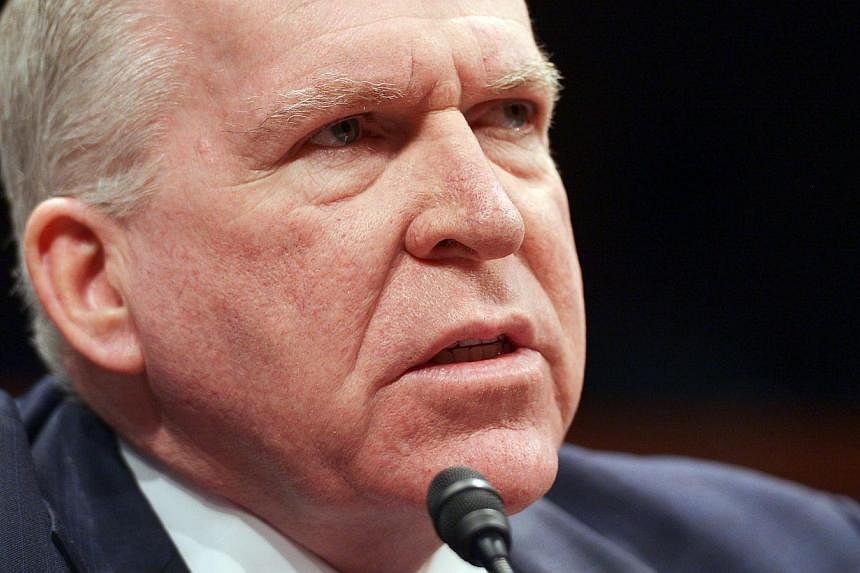WASHINGTON (REUTERS) - CIA Director John Brennan acknowledged that the CIA detention and interrogation program "had shortcomings and that the agency made mistakes".
But he denied that the agency misled anyone about it and said the agency's own review indicated that detainees who were subjected to harsh interrogations "did produce intelligence that helped thwart attack plans, capture terrorists and save lives".
Brennan was responding to a report by a US Senate committe released on Tuesday that accused the CIA or routinely misleading the White House and Congress over its harsh interrogation programe for terrorism suspects and said that its methods, which included waterboarding, were more brutal than the agency acknowledged.
A law enforcement official said that the Justice Department had no plans to conduct any investigation of the CIA's actions in light of the release of the report.
Intelligence officials said that at one point, the Justice Department, through a specially-designated prosecutor conducted a criminal investigation into around 20 cases of allegations the CIA abused detainees. However, that investigation was closed without charges being filed.
The report charts the history of the CIA's Rendition, Detention and Interrogation programme, which President George W Bush authorised after the Sept 11 attacks. Bush ended many aspects of the program before leaving office, and Obama swiftly banned "enhanced interrogation techniques" after his 2009 inauguration.
Republican Senator John McCain, who was tortured as a prisoner of war in Vietnam in the 1960s, said Americans were entitled to the truth about the program and its disclosure that such methods were ineffective.
Two Republican senators, Marco Rubio and Jim Risch, issued a statement calling the release of the report "reckless and irresponsible. They said it "could endanger the lives of Americans overseas, jeopardise US relations with foreign partners, potentially incite violence, create political problems for our allies, and be used as a recruitment tool for our enemies".
The executive director of the American Civil Liberties Union, Anthony Romero, said in an opinion piece in The New York Times that Obama should issue formal pardons to senior officials and others to make clear that these actions were crimes and help ensure that "the American government never tortures again."
The 500-plus page report that the Intelligence Committee has prepared for release, a summary of a much more detailed, 6,000-page narrative which will remain secret, includes 200 pages on the interrogation program's history and 20 case studies.

